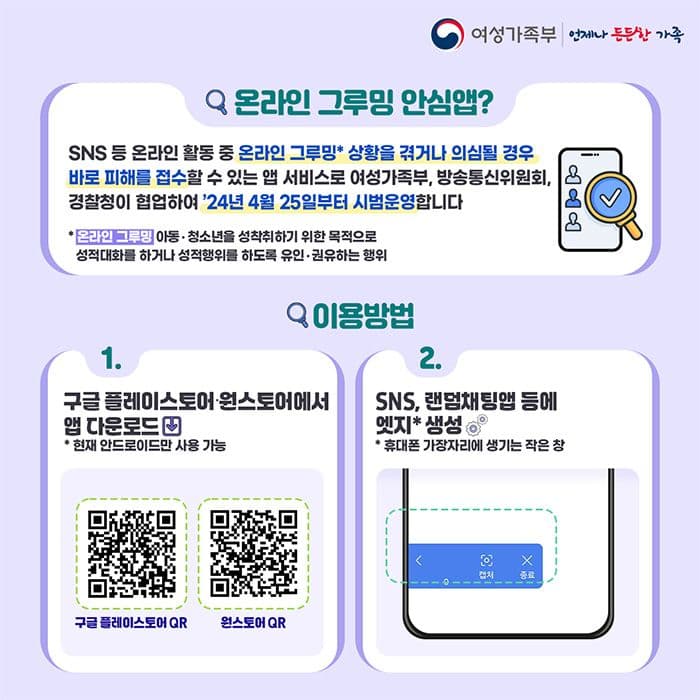When Social Media Becomes a Hunting Ground: The Dark Reality of Youth Exploitation in Korea

The Case That Shook Seoul
On July 24, 2025, Seoul's Jungnang Police Station announced the arrest of a man in his 20s, identified only as Mr. A, on charges of rape under the Youth Protection Act and confinement under the Criminal Act. The incident occurred on July 16, when Mr. A met a minor, referred to as Ms. B, through social media and took her to a motel after drinking together. When Ms. B refused his sexual advances, Mr. A responded with violence, forcibly assaulting her and preventing her from leaving the premises. Police received the report at 3:40 a.m. that same morning and immediately launched an investigation, leading to Mr. A's arrest and subsequent indictment in custody on July 21.
This case represents just one example of a deeply troubling trend sweeping across South Korea. According to the Ministry of Gender Equality and Family's 2023 analysis of court judgments, there were 3,452 registered sex offenders targeting minors that year alone. What makes this particularly alarming is that while traditional sexual violence cases have decreased from 75.9% in 2019 to 62.7% in 2023, digital sex crimes have surged dramatically from 8.3% to 24.0% during the same period. The online world has become a hunting ground, and young people are increasingly vulnerable targets.
Understanding Online Grooming

So what exactly is happening in these digital spaces? The term you need to know is online grooming, a manipulation technique where predators build trust with vulnerable young people before exploiting them. Think of it as a carefully orchestrated plan: perpetrators approach teenagers through social media, random chat apps, or online communities, showering them with compliments, listening to their problems, and creating an emotional dependency. They might send gifts, money, or simply provide the attention that lonely or troubled youth desperately crave.
The statistics paint a frightening picture. A 2024 study by the Korea Youth Policy Institute revealed that exposure to online grooming begins as early as elementary school, affecting around 5% of students, and increases to as high as 14% by high school. The average age of minor victims has dropped to 13.9 years old in recent years, down from 14.6 years in 2017. Even more concerning, a 2019 survey by the Ministry of Gender Equality found that 11.1% of middle and high school students had experienced some form of sexual solicitation online within the previous three years. These aren't just numbers on a page; they represent thousands of young lives permanently scarred by predators who hide behind screens.
Why Are Korean Youth So Vulnerable
You might be wondering why this problem seems so prevalent in South Korea. The answer lies in several cultural and technological factors unique to the country. South Korea has one of the world's highest rates of smartphone penetration and internet connectivity among young people, with teenagers spending significant time on social media platforms, messaging apps, and online communities. Many Korean youth face intense academic pressure, family conflicts, or emotional difficulties, making them susceptible to attention from seemingly caring strangers online.
Korean online communities have also reacted with a mix of outrage and frustration to these ongoing cases. On platforms like Naver, Daum, DC Inside, and FM Korea, netizens have expressed anger at lenient sentencing for perpetrators and concern about inadequate protection systems. Common reactions include demands for harsher punishment, calls for better digital literacy education, and criticism of social media platforms for failing to protect young users. The debate often centers on whether current laws go far enough, with many arguing that even recent legal reforms don't adequately address the scale of the problem.
Legal Reforms and What Comes Next
The Korean government has responded with increasingly strict legislation. Recent amendments to the Youth Protection Act, effective from April 2025, have expanded the definition of grooming to include offline behaviors, not just online communications. Punishments have been significantly increased: coercion using sexual exploitation materials now carries sentences of five years or more instead of three, while threatening minors with such materials can result in three years or more instead of one. Police can now conduct emergency undercover investigations without prior approval when urgent action is necessary to protect minors.
Despite these legal improvements, experts argue that prevention education and cultural change matter just as much as punishment. The Ministry of Gender Equality has developed seven safety guidelines for youth and parents, emphasizing the importance of never sharing personal information online, refusing requests for photos or meetings from strangers, and immediately reporting suspicious behavior to trusted adults. Organizations like the Korean Women's Human Rights Promotion Institute operate 24-hour hotlines and provide services to delete illegal content and support victims. Still, the real solution requires parents, educators, and society to recognize that today's predators don't lurk in dark alleys anymore; they hide in chat rooms, direct messages, and comment sections where young people spend countless hours every day.
Discover More

HYBE's HQ Raided: What's Really Behind Bang Si-hyuk's $140M Scandal?
Police raided HYBE headquarters in October 2025 investigating fraud allegations against founder Bang Si-hyuk. CLO Jung Jin-su sent internal emails reassuring employees as the K-pop giant faces its biggest crisis yet.

I'm Actually a Good Person: Shocking Defense from Father Who Shot His Own Son
In a chilling incident that stunned South Korea, a 62-year-old father killed his son with a homemade gun at a birthday party, later telling investigators he was originally a good person who lived kindly.